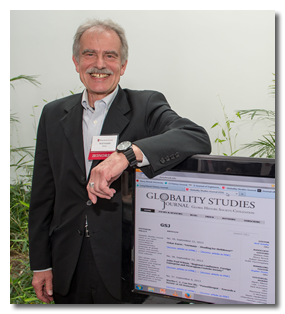Automotive Ethics Laboratory
Fully Automated Vehicles (AVs) can eliminate brakes and steering wheels, that is, human drivers. AVs of the highest level may have human occupants, but no human drivers. The acquired skill of driving a car or truck will migrate into the development of Automotive Artificial Intelligence (AAI).
AAI will pilot cargo (including humans) through traffic more securely and efficiently than the current system of manned vehicles. It will perceive and evaluate rapidly changing traffic situations much faster and more comprehensively than a human brain. Hence, it will steer AVs more competently and with fewer accidents.
The Automotive Ethics Lab builds on this vision and considers AAI development "computing for good.” We assume that AAI will increase road safety significantly, but we do not anticipate a crash-free future. AVs will have accidents, yet, unlike humans, they will have the computational ability to evaluate different kinds of crash scenarios in real time.
Ethics enters the world of AVs when their "moral machines" decide between preferable accidents, for instance, when an AAI chooses whether to run the AV into a school bus or itself off the road. Thus, the Automotive Ethics Lab investigates the moral programming for AV decision-making in dilemma cases.
Research Leader
VIP Team
VIP stands for Vertically Integrated Projects, a new instruction format for higher education. VIP Teams integrate freshman, sophomore, junior, and senior students, plus faculty, Master and PhD students in their meetings. The project– Automotive Ethics – is interdisciplinary by default and long-term by the nature of its knotty problems.
Student and Alumni Researchers
Automotive Ethics Glossary
This list is partial to SAE Level 4 and 5 Automated Vehicles; it will be revised and updated continuously.

